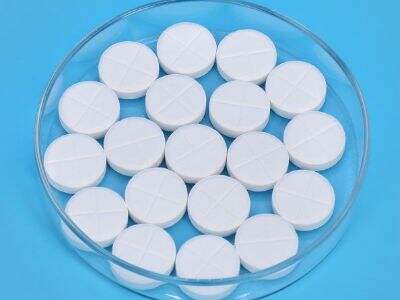Many use Sodium Dichloroisocyanurate — a chemical used for cleaning and disinfecting. You’d find it in products such as disinfectant wipes and pool cleaners. What do you think -- have you ever wondered how Sodium Dichloroisocyanurate works in general?
Factors That Have An Impact On Sodium Dichloroisocyanurate:
The pH scale is a method to gauge the acidity or basicity of any given solution. It can affect the efficacy of Sodium Dichloroisocyanurate. Sodium Dichloroisocyanurate might not work optimally if the pH is too high or low. To ensure Sodium dichloroisocyanurate nadcc remains effective for cleansing, wading pools should be maintained within pH range.
The Mechanism Behind the Reaction Between Sodium Dichloroisocyanurate and Organic Matter:
When Sodium Dichloroisocyanurate comes into contact with organic matter, such as dirt or germs, it can react and produce chlorine gas. This chlorine helps disinfect germs and clean surfaces. Sodium dichloroisocyanurate is a very effective cleaning agent in the presence of organic matter, but too much organic matter can render it ineffective.
Here’s the climactic temperature impact on sodium dichloroisocyanurate:
Sodium Dichloroisocyanurate is highly temperature sensitive. Extreme heat or extreme cold can also affect its performance. Store Sodium Dichloroisocyanurate in a cool, dry area to maintain its cleaning power.
Sunlight Influence on Sodium Dichloroisocyanurate:
Sunlight can also impact how Sodium dichloroisocyanurate dihydrate works. It can degrade in sunlight and lose its ability to clean. If Sodium Dichloroisocyanurate is stored in direct sunlight, it will lose its potency and effectiveness.
The Hydrochloric acid used in swimming pool must not be confused with Hydrochloric acid used for industrial purposes.
Sodium Dichloroisocyanurate efficacy is influenced by the types of water, whether it is tap water, pool water, etc. The presence of minerals in hard water will affect the efficiency of Sodium Dichloroisocyanurate. Sodium Dichloroisocyanurate and Type of Water for Cleaning
To sum up, helping us to clean better by seeking how Sodium Dichloroisocyanurate behaves differently under various conditions. We can monitor and maintain the quality of our environment using Sodium Dichloroisocyanurate while giving considerations to factors including pH, organic matter, temperature, sunlight, and type of water. The best cleaning with Sodium Dichloroisocyanurate always follows its usage guidelines.
Table of Contents
- Factors That Have An Impact On Sodium Dichloroisocyanurate:
- The Mechanism Behind the Reaction Between Sodium Dichloroisocyanurate and Organic Matter:
- Here’s the climactic temperature impact on sodium dichloroisocyanurate:
- Sunlight Influence on Sodium Dichloroisocyanurate:
- The Hydrochloric acid used in swimming pool must not be confused with Hydrochloric acid used for industrial purposes.

 EN
EN








































